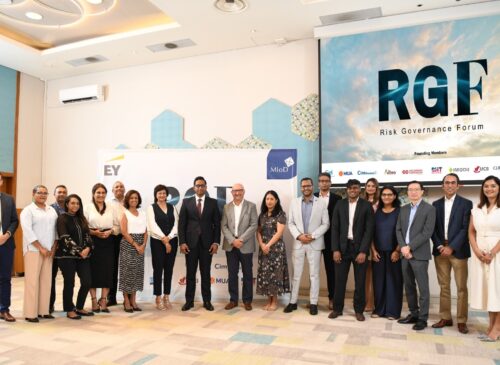As the name state, corporate governance is the way a company is governed. This is usually done by the board of directors that acts as an agent for the shareholders (Agency model). The role of the board has evolved a lot especially following the corporate failures of the 1980s and 1990s. Good examples of these are in the US is Enron, Worldcom, Lehman Brothers, etc and the collapse of Maxwell Publishing, Polly Peck, Bank of Credit and Commerce International in the UK. In that respect, initiatives were engaged to ensure that directors are engaged with good corporate governance with the first code on corporate governance following the publication of the Cadbury report. Mauritius as well as not remaining complacent has issued its first code in 2003 and with a revised code in 2016 adapting to the new exigencies of the modern business.
The 2016 Code of Corporate Governance (Code) adopted by Mauritius is innovative. It provides eight guiding principles and it is principles-based rather than ruled based. Companies are required to apply the guiding principles, but should they not able to do so, they need to explain why there is a departure. Mauritius was the only country to implement such a model and due to its flexibility, other countries have expressed their intent to adopt the same principle.
Following the pandemic of COVID 19, we have seen that there must be a change in mindset. The new environment is characterized by an increasingly complex set of pressures and demands from the various traditional stakeholders, but this is complemented by an increased expectation from societal engagements, corporate citizenship, and radical uncertainty about the future. To address this, company boards must pay increased attention to their role, not only to guide the company to the traditional role of increasing shareholders’ wealth but also to have a more active role in monitoring the company’s relationship with their other stakeholders.
In that respect, in a post COVID era, one needs to have a robust governance structure with an effective board consisting of a diversified member paying attention to technical competencies on the core business activity of the company as well as having the requisite experience and subject matter expertise. The board’s role is to ensure that the risk and opportunity are measured adequately such that it can provide strategic guidance and oversight to the business need. A right blend of the diversity of experience and perspective is critical. In that respect, MIoD with its database can help companies to look for the right talent and expertise to ensure that this objective is met.
The expectations of directors become more pressing. In a post COVID era, directors would be expected to work more closely with management to develop strategies suited for the company’s vision. In that respect, board members need to anticipate emerging threats and opportunities, thus developing a plan to tackle the same. Once the plan developed, they need to challenge their own assumptions to ensure that any deviation can be attended by alternative plans. Once this is done, they will need to keep tracking the richer set of performance measures. Further directors will need to have a tighter view of the financial results, evaluating any financial impacts, monitoring liquidity (cash is king) whether it is suppliers who will put more pressure to get their cash as well and on the other hand, the customers may be more relaxed on their obligations, but the usual obligations such as salaries and wages need to pay within the statutory deadline.
A Failure to meet the going concern obligation put an additional responsibility on the directors as they can be personally liable for debts that the company incurs under the Companies Act 2001.
COVID-19 will add new challenges. Directors will need to be overseeing an expanded menu of risk, and this can inter alia, include foreign exchange with a depreciating rupee vis a vis the major currencies one operates internationally. As explained above, there is the liquidity risk, but the new emerging risk is information technology (IT), be it within the hardware or software space. Empowering the labor force to work from home or from different locations can also make the system vulnerable from hackers. Directors will need to rethink on security measures to protect the organization against any cyber-attacks.
With the use of IT, there are huge possibilities of deriving synergies and directors must evaluate the labor force. Should there be redundancy, rethinking of compensation policies whilst at the same time retain and attracting valuable and innovative talents to help the company getting to the next level of its development.
All the above will need an engaging board to be involved in more thoughtful deliberations. It is important to review the board compositions. With the amendments of the Finance Act 2020 to the Companies Act 2001, the composition of board needs to be reviewed to include independent directors. So, the composition of the boards will now include a blend of executive directors, non-executives and now at least one independent director. The tendency is also to have the right blend of diversity and gender balance, but all that should have an angle of being appropriate caliber and qualification to achieve the objective of the organization. At MIoD, we believe that we have in terms of directors’ induction, evaluation and measuring the boards’ effectiveness to enable an organization to adhere to Principle 4 of the National Corporate Governance code of Mauritius 2016. Corporate Governance and Ethics Assessments services are also among other organizational supports that can be provided by the Institute.
COVID-19 has made the director’s job more demanding by adapting to a new challenging environment with a dynamic paradigm and also requiring them to work more closely with management to guide them to achieve the strategies.



